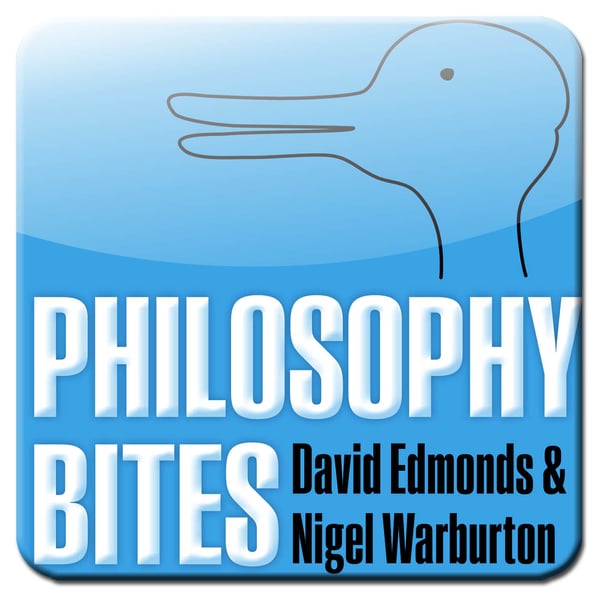Peter Singer on Life and Death Decision-Making (originally on Bioethics Bites)
Philosophy Bites
Nigel Warburton
4.6 • 2K Ratings
🗓️ 29 April 2012
⏱️ 16 minutes
🧾️ Download transcript
Summary
How should doctors, patients and family make end of life decisions? Peter Singer explores questions about euthanasia, abortion and autonomy in conversation with Nigel Warburton in this bonus episode of the Philosophy Bites podcast (originally released on Bioethics Bites). This episode was made as part of Bioethics Bites in association with the Oxford Uehiro Centre for Practical Ethics and made possible by a grant from the Wellcome Trust.
Transcript
Click on a timestamp to play from that location
| 0:00.0 | This is a biorethics bites with me David Edmonds and me Nigel Warburton. Bioethics is made an association with Oxford's Uhero Center for Practical Ethics and made possible by a |
| 0:14.0 | grant from the Welcome Trust. For more information about bioethics bites go to |
| 0:18.6 | www dot practical ethics dot oX dot uk |
| 0:25.0 | or to iTunes u. |
| 0:26.0 | if a patient decides she doesn't want to live any longer |
| 0:29.0 | should she be allowed to die |
| 0:31.0 | should she be allowed to kill herself? If a patient is in no condition to decide, |
| 0:36.2 | perhaps she's in a coma, then should somebody else be able to decide for her whether or not she continues |
| 0:41.4 | to exist? Who should take on that role? Is there a |
| 0:44.6 | moral difference between killing and allowing someone to die? And is the role of the |
| 0:48.4 | doctor always to prolong life? Peter Singer, at Princeton University, is one of the world's leading bioethicists. |
| 0:56.0 | Peter Singer, welcome to Bioethics Spites. |
| 0:59.0 | Thanks, Nigel. It's good to be with you. |
| 1:01.0 | We're going to focus on questions about life and death decision making. |
| 1:04.7 | You're famous as a utilitarian. |
| 1:07.9 | How do you approach the issue of deciding in medical cases whether someone should live or die? |
| 1:15.8 | I think to answer that question you need to distinguish different cases. |
| 1:19.2 | Although I am a utilitarian, I think that generally we will bring about better consequences if we allow |
| 1:25.3 | competent adults to make their own choices on matters that primarily concern |
| 1:30.6 | themselves. This is a principle that John Stuart Miller, |
| 1:33.7 | a great utilitarian, certainly defended, and I think he was right on this. So if we're |
| 1:38.6 | talking about a competent adult, then I think in pretty much all circumstances you can imagine, that decision ought to be up to him or her. |
... |
Please login to see the full transcript.
Disclaimer: The podcast and artwork embedded on this page are from Nigel Warburton, and are the property of its owner and not affiliated with or endorsed by Tapesearch.
Generated transcripts are the property of Nigel Warburton and are distributed freely under the Fair Use doctrine. Transcripts generated by Tapesearch are not guaranteed to be accurate.
Copyright © Tapesearch 2025.

